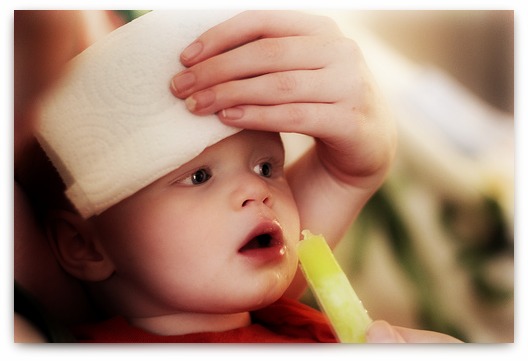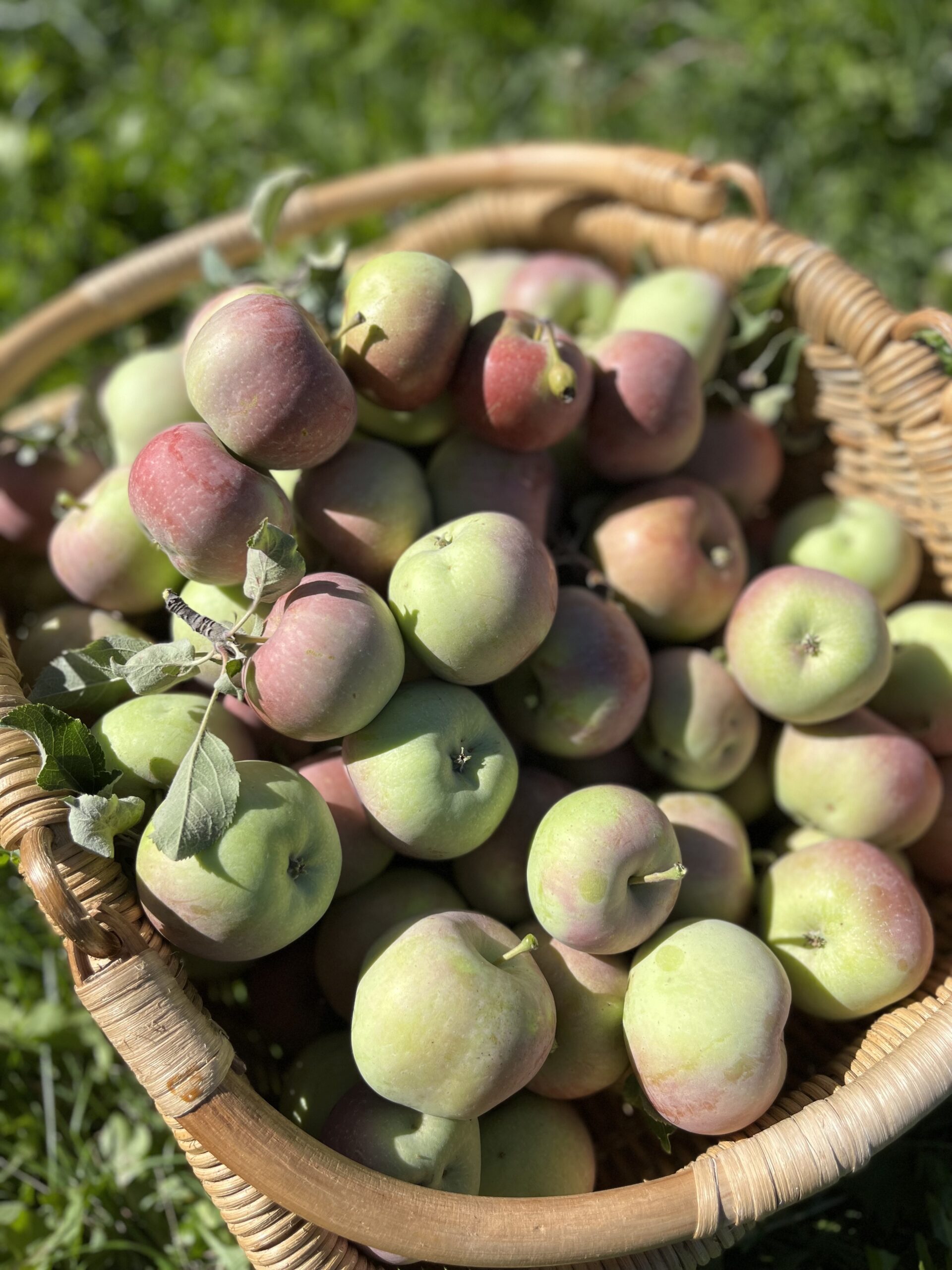A few weeks ago, when my daughter was just taking her first steps, she tripped and fell hard on her face, biting her lip in the process. There was understandably a lot of crying and even a little blood. I was busy cooking dinner, and my husband scooped up our little one to love on her and console her—and immediately handed her one of the cookies he was eating to distract her from her pain and quell her tears.
Man, who hasn’t done something like that? I totally understand where he was coming from. But I felt an instant twisting in my stomach as he did it.
Because I know from too much experience: that way lies emotional eating.
I am an emotional eater. It has taken me years to recognize it, and I still don’t have it 100 percent under control. Sometimes—many times—the only thing I can think of to soothe myself in troubling times is food.
And I want my daughter to have better resources than that.
Research shows that children learn to eat for emotional reasons by age 3. And that same study showed that mothers who used food to soothe their children tended to have heavier children.
But man-oh-man, it is SO EASY TO DO.

In fact, it’s so easy to fall into that habit of using food to soothe our kids, we may not even realize we’re doing it. My own babysitter routinely starts handing out Cheerios and freeze-dried fruits to my daughter when she starts to get bored and fussy as it gets closer to nap time. Cheerios and freeze-dried fruit are pretty healthy compared to cookies, but the principle those snacks are teaching is the same. (We’ve had a little chat about it and I’ve started making sure I don’t leave snacks sitting out where they are tempting—to babysitter OR baby!)
I was talking just recently to an acquaintance of mine who proclaimed that her toddler couldn’t get through an outing of any sort—even a stimulating trip to the zoo—without a snack to distract and placate him.
I’ve even had the little old ladies at Costco who hand out samples try to bribe my fussy daughter with a treat!
So, it’s not just handing out a cookie to soothe a skinned knee. American food culture condones eating for reasons other than hunger all the time—and we must make ourselves aware and vigilant about it.
Eating for reasons other than hunger
We use food to soothe, to bribe, to reward, even to punish (“no dessert if you don’t finish your veggies”)—when all food is really meant to do is nourish us.
I’ve written before about my own struggles trying to remember that food isn’t my friend and it isn’t my enemy—in fact, it’s my No. 1 food rule in my family foodie manifesto. But it’s not something that came easily to me, and it’s not a complex I want to bequeath to my own daughter, if I can possibly help it.
Using food to soothe (or bribe, or reward, or punish) teaches our children that eating has emotional rewards beyond just the pleasure of taste and satiety. It also teaches them to use emotions—like distress, pain, or even happiness—as a cue to eat, rather than only eating when they are hungry.
It’s a psychological barrier I’ve struggled for years to escape, and I just feel grateful that I have developed enough personal understanding that I can at least recognize the patterns now, and make a conscious effort to break the cycle.
How to stop using food for emotional reasons
There are a few key ways parents can avoid these emotional eating traps:
- Increase your own awareness. Just bringing these sorts of things to the forefront of your mind will help you recognize when you and those around you might be using food for purposes other than eliminating hunger or providing nutrients—’cause that’s all it was ever designed to do!
- Eat on a schedule. Decide when your kids eat—and more importantly, when they don’t. How many snacks per day do they get? How many meals? Is it OK to eat in the car? Is it OK to eat at the store? If you decide these things ahead of time, anything that doesn’t fall into one of your pre-planned eating times should be examined for emotional baggage.
- Plan ahead for non-food rewards. I don’t think that the occasional pizza after a big little league win or ice cream for an A+ is going to ruin your child. But I do think it’s beneficial to think outside the box and come up with some non-food rewards that your child will love. The key here is planning ahead, because it’s a lot easier to go out for ice cream than it is to pull a new book/toy/activity out of your bag at the last minute.
Have you struggled with emotional eating, either yourself or with your kids? I’d really love to hear about your challenges and successes in the comments below.
And if this post resonated with you, please consider sharing it on Facebook or Twitter.


“American food culture condones eating for reasons other than hunger all the time. . .” — This statement really has me thinking. There are so many variables here: People eat out for entertainment, enjoy cooking as a hobby, get to know each other over a plate of food, make a connection with another. . .Yes, we eat to soothe emotions sometimes, (often in fact) but enjoying a meal brings more to most people than just satiating hunger. It’s often an event we plan for, look forward to and reminisce about. It’s the control we have to impart on our children. Turning to food as the only way to work through issues isn’t good, but who can deny a “treat,” whether it’s in the form of a nice restaurant, a sweet or homecooked meal, can be a catalyst to turn our frowns upside down? Maybe I’m more in denital than I realize I am, but there’s a balance in terms of handing our kids the facts that food is energy for our bodies, but also the experience (joy, in fact) of food as a part of our lives. Please feel free to set me straight 😉
No, you’re absolutely right! I am a total hedonist! Food is one of the biggest pleasures of my life. I wouldn’t be doing all this if I didn’t love food.
But it’s one of those tricky gray areas—at least for me. Because, when I start to JUST eat for pleasure too much, that’s when I notice my weight starts creeping up on me. (Probably also because I don’t go out for a 10 mile run just for pleasure, EVER! 🙂
I definitely want to teach my little one to love food, to enjoy every bite, to look forward to a treat. I can’t imagine life being worth living if we didn’t do that!
But I also want SO BADLY not to pass on my food issues to her. *sigh* I really don’t have it figured out.
Thanks for making me think about this more deeply!! 🙂